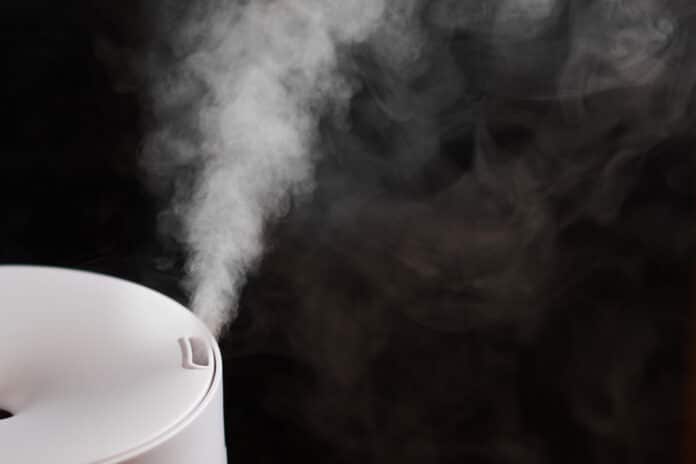If you have ever considered setting up a humidifier in your home but don’t necessarily understand why you should, then you are not alone. If you suspect your household may benefit from the addition of a humidifier, then keep reading for everything you need to know about humidifiers.
How does a humidifier work?
Humidifiers work by adding moisture back into the air in your home. During the winter months, your home is likely to dip below the ideal humidity levels for skin and sinus health. Additionally, running forced air all summer can also have the same effect. This leaves many of us in environments where the air is too dry for most of the year. This is where humidifiers come in. Let’s see if your home is one of the many households that could benefit from a humidifier.
Do you need a humidifier?
Take a second to think about the air quality in your home. Do you often feel sweaty or uncomfortably warm even in the winter months? If this sounds like you, then the air in your home is likely too humid to begin with. If you regularly suffer from dry, flaky skin or congestion (especially at night) then there is a good chance that you will experience a myriad of benefits when installing a humidifier in your home.
What are the benefits?
If the people in your household do tend to experience dry and irritated skin that lotions and body butters don’t seem to cure, it’s time to invest in a humidifier. A humidifier is an instant skin soother as it will take the humidity levels in your home up to a more comfortable range. Most people feel more comfortable when their relative humidity levels fall between 30% and 60%. Forced air can often cause the humidity levels in your home to fall below that 30% threshold. This is when the chapped lips and dry, itchy, and cracking skin will start to manifest.
You may be familiar with the usage of humidifiers for sinus issues. Humidifiers can be a lifesaver for those who suffer from chronic sinus irritations or congestion from seasonal allergies and illnesses. This is due to sinus irritation often happening when the mucus membranes in the nasal passages dry out and become swollen. This can be incredibly uncomfortable and can lead to further issues like sinus headaches or bloody noses. Many of us with chronic sinus issues may shy away from a humidifier because of the assumption that adding moisture into the air could exacerbate the sinus irritation. This, however, is not the case as the water vapor can help loosen any phlegm stuck in the nasal passages which will allow you to breathe more easily. If your sinus issues keep you up all night, a humidifier could be your answer to a better night’s sleep.
Cool Mist Versus Warm Mist
So now that you have determined that you need a humidifier for your home, you will now have to figure out which type will work best for your family. There are two main types of humidifiers that you can purchase which will be a cool mist or warm mist humidifier. A warm mist humidifier is a steam vaporizer that uses electricity to heat its water supply to a boiling point which then releases the steam. The steam cools down before being released into the room and will then enter the air you breathe and eventually the body.
A cool-mist humidifier can come in three different forms:
- Evaporative Humidifiers have a wick that holds the water supply which is heated with a built-in fan that blows warm air towards it. The water evaporates and enters the air as vapor when the air hits the wick.
- Ultrasonic Humidifiers are similar but instead of a fan, they utilize high-frequency vibrations that turn the water supply to vapor.
- Impeller humidifiers utilize a rotating disc to create mist. The disc will move quickly, sending water through the diffuser and breaking down the water drops into smaller particles.
Which one is right for you?
While each type of humidifier will essentially function the same way, those with severe sinus issues may gravitate towards the warm mist variety. The steam that they produce is known to be particularly effective when it comes to sinus relief. If you intend to use a humidifier in the room of a child, a cool-mist humidifier can often be a safer option as there will be no standing hot water in the tank. Or if you are looking for a more silent option then the ultrasonic humidifier would be your go-to. No matter which option you choose, you are sure to experience a significant improvement in air quality once you set up your humidifier.
All content herein is owned by author exclusively. Expressed opinions are NOT necessarily the views of VNR, authors, affiliates, advertisers, sponsors, partners, technicians, or VT Network. Some content may be satirical in nature.
All images within are full responsibility of the author and NOT VNR.
Read Full Policy Notice - Comment Policy





























